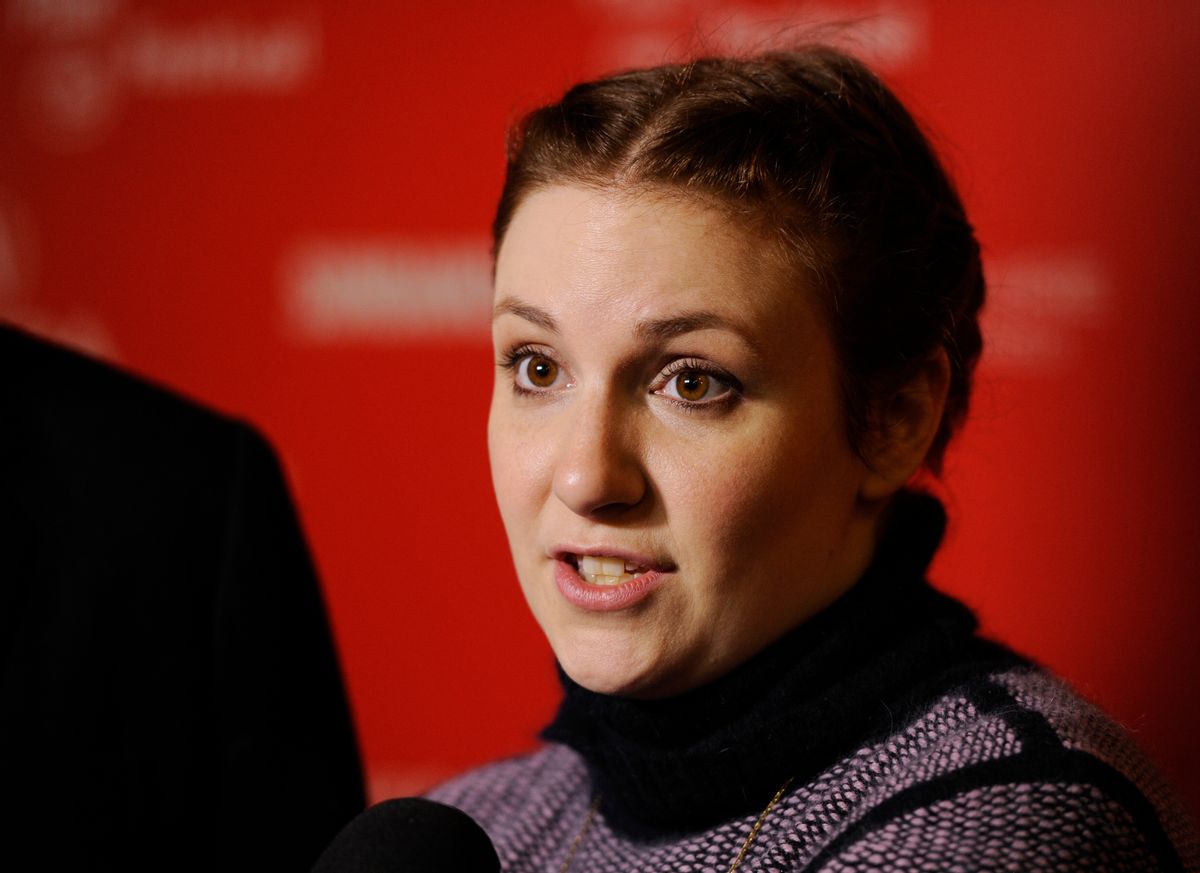People love to hate on Lena Dunham’s “Girls.” It's sort of a national pastime, like keeping up with the Kardashians, or watching rats expertly maneuver pieces of pizza down flights of stairs. But while the news that Lena Dunham is getting a brand new HBO show may be music to haters’ ears, her newest venture, “Max” -- a 1960s-set comedy about a young woman navigating feminism while working in the magazine industry -- actually sounds like something that the even the staunchest members of the anti-“Girls” faction might be able to get on board with. While the premise does evoke "Girls" (young female writer dealing with zeitgesty generational issues), it also has some significant differences.
Here are five reasons why “Girls” haters might find room in their hearts for Dunham’s newest outing:
It’s not autobiographical
Most of Lena Dunham’s work — “Girls,” her movie “Tiny Furniture,” her book “Not That Kind of Girl” — is either loosely or directly autobiographical, and it’s this sort of solipsistic focus that most seems to rub critics the wrong way. Dunham has been all over the place since she exploded onto the scene in 2012, so it’s no wonder that society is experiencing a bit of predictable Lena-fatigue (heck, even Taylor Swift is threatening to take a break for that same reason).
Yet “Max" is the rare project that doesn’t have our resident millennial provocateur at the front and center, so it won’t be as easy to dismiss it as just another example of Lena-through-the-looking-glass. Rather, the show centers on a fictional character played by Lisa Joyce, a rising actress who has been doing fine comedic work on Neil LaBute's “Billy & Billie” in addition to dramatic stints on shows like “Boardwalk Empire.” We’re excited to see more from her.
It’s a period piece
“Millennial” is one of those buzzwords that has taken on the status of a curse-word in recent years, and “Girls’” emphasis on a specific subset of spoilt, self-involved New York Millennials managed to really to really crystallize everything people hate about the current generation.
"HBO’s ‘Girls’ is so zeitgeisty it hurts to watch,” one critic wrote in the Washington Post back in 2012, while Jezebel observed that “Generation Y Collectively Squirms at the Truths in Lena Dunham’s Girls." Thankfully, "Max" takes place in the much more palatable era of the ‘60s (rampant racism, sexism and homophobia aside), when “Molly” was just some girl who worked at your office and Grumpy’s cafe was just a twinkle in Brooklyn’s eye. Phew, historical escapism!
A more robust feminist approach
“Girls’” identity politics have been heavily debated, with some lauding it for its realistic depiction of the lives of young women while others have dubbed it, not to mince words, “white girl feminism at its worst" (and that's not even getting into its iffy racial politics).
While the same charges might eventually reach “Max,” the fact that the show is about a character who “accidentally stumbles into the women's movement during second-wave feminism” suggests that the show might have a more coherent ideological narrative, or at least a level of self-awareness that "Girls" lacked in its early days.
It sounds more like “Mad Men” than “Girls”
Lots of people don’t like “Girls," but hey, who didn’t like “Mad Men?” (RIP, Sterling, Cooper and partners). And the premise — a low-level magazine employee navigating feminism in the early 1960s — sounds exactly like the Peggy Olson spinoff we’ve long been dreaming of. While “Mad Men” dealt a lot with workplace sexism, it will be fascinating to see a period drama that puts the experience of women front and center. Plus, we already know that Dunham and Jon Hamm are pals, and that Jon Hamm loves cameoing on popular comedies, so you do the math here.
A new tone
The pilot script was written by “Girls” writer Murray Miller, who was responsible for “Ask Me My Name,” one of the most interesting and unusual episodes of last season, a bizarro NYC art world romp infused with an oddball comedic energy that "Girls" often lacks. As Alan Sepinwall wrote over at HitFix, “the episode felt like Hannah, Adam and Jessa had temporarily wandered into someone else's show, with its own tone and sense of reality.” That’s a good thing! Miller's writing style is bound to be markedly different than Dunham's -- his other writing gigs include the seminal low-key family comedy “King of the Hill,” “American Dad,” and the brilliant and underrated Lord/Miller venture “Clone High” -- so we’re excited to see how his cartoonish sensibility merges with Dunham’s more realistic satire.

Shares